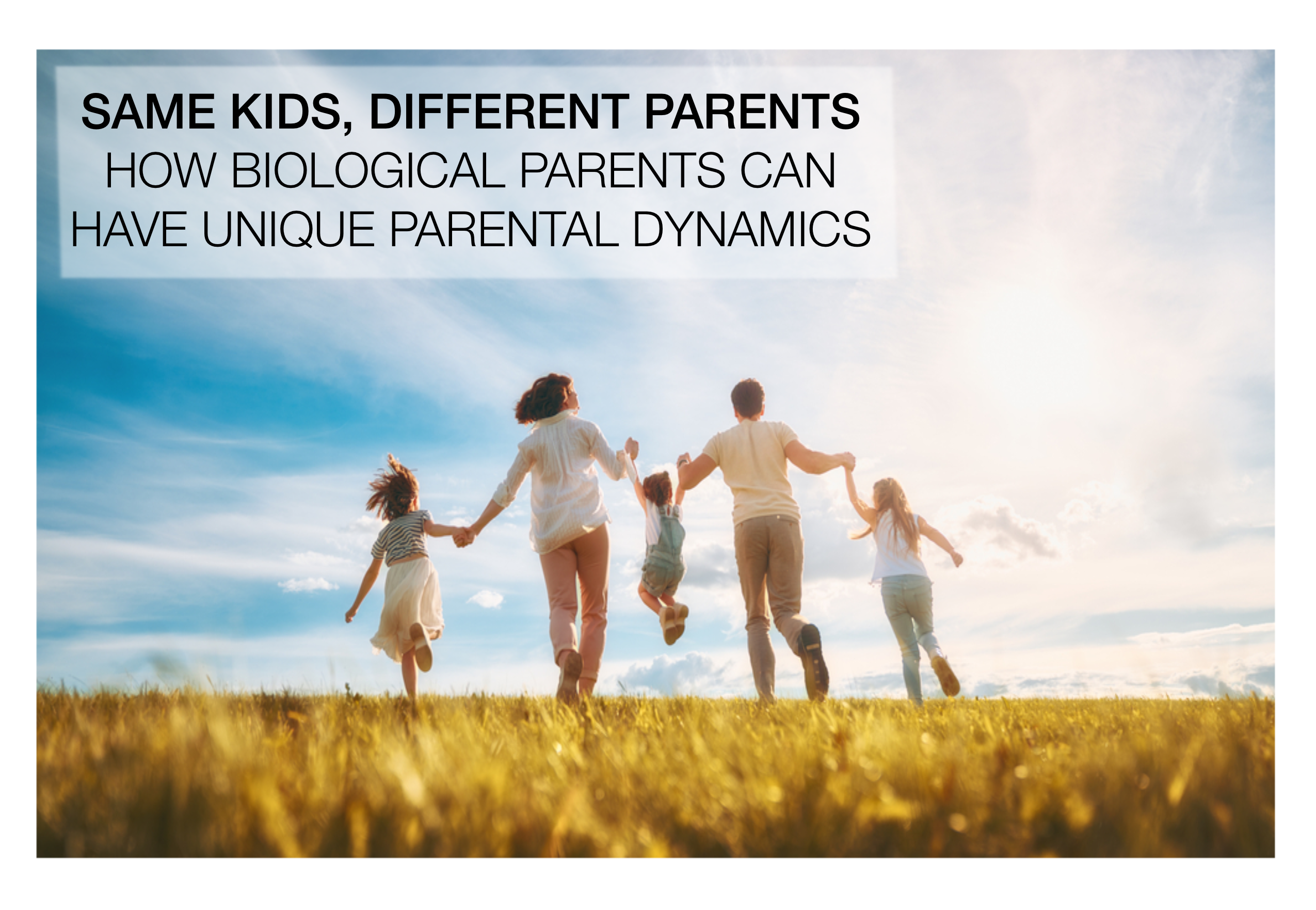Biological siblings may share the same parents, DNA, name, even the same social standing, but one thing they don’t share: the same parental relations. In any nuclear family, each child has a unique relationship with each parent. No two are alike.
This dynamic is elevated by each child’s unique characteristics – their age, gender, the order they were born, character traits, interests, and pursuits. Think about your own upbringing. If you had siblings, you each faced unique realities that impacted your parental relationships. One might have had a learning disorder, whilst another be a “straight A” student. One may have excelled in team or individual sports, whilst the other was more interested in the arts. One might have been social and outgoing, whilst the other preferred more alone time reading books. The eldest might have been given more responsibility than their younger siblings, who might have been more mollycoddled.
Every parent-child bond is unique. They will have shared different experiences, maybe attended sporting events that the others didn’t like, or had opportunities to travel together, or amassed a lifetime (albeit short, depending on the child’s age) of experiences uniquely theirs to share.
Probably each child communicated and bonded with their shared parents differently, possibly over those interests they had shared alone. Each of you likely have or had a deeper connection with one parent more than the other. You might have gone to your mother instead of your father (or vice versa) with bad news, seeking advice or counsel.
More importantly children need to realise that although they may be biologically from the same parents, they have had very different parents. When my wife and I had our first child, a boy, we were young, inexperienced at parenting, and at a different stage of life. When our second child came along, we knew more about being parents, but this time, we had a daughter, which created a new dynamic, and new experiences for parents at a different stage of our evolution as a couple, as parents and in life.
Our third child was yet another new experience. When we travelled, it was with one child in school, another in kindergarten and the third an infant. Each child had a totally different and unique parental experience – and a totally different set of parents. This is another element that makes our children different and creates the question, why did you treat me differently?
This is not a bad reality. But it’s one that deserves awareness and attention by the parents and adult children. It’s simply a family dynamic worth realising and addressing, especially if it is leading to family issues.
Outwardly, many parents will insist their children are treated equally and there’s no favouritism in the family. Siblings may claim the opposite.
This dynamic can manifest in good and bad ways, which means it is important to understand how they may affect the family. It can lead to sibling rivalries, jealousy, or fears of favouritism. Regardless of whether the feelings are justified, realising their existence – and possible origin – can help parents and adult children address such emotions, or handle their relationships more sensitively.
Favouritism exists in many families and not all relationships are equal, because of each child’s intellect, business prowess, or interpersonal skills. One child may be “groomed” to head the family business or office, or they might seek praise or reward in ways the others are not.
Parents may not even see this dynamic at play. Convinced they’re treating all equally, they may do nothing to remedy it. The truth is, it doesn’t necessarily need fixing. You cannot treat all your children, who are different, the same or equally. It is hard, but rare, that parents will see this reality at play and seek to ensure fairness or impartiality across the relationships.
As such, realise that any advice you give, as a parent, will be seen and taken through each child’s unique lens. Don’t force some sense of “sameness” – in your appreciation for or advice to – on your kids, regardless of whether they are half or stepchildren who’ve come into the family. This hunt for uniformity will dilute the uniqueness of each relationship and the individual needs they may have.
In reality, it’s impossible to treat your children equally, as their needs, personalities, and goals are different. It’s a reality we need to accept and embrace.
Blood siblings share a lot. Their relationships with their parents and each other are uniquely their own. It’s something worth recognising and celebrating.
If you’re curious or concerned how your parent-children dynamics may be affecting interpersonal relations across your family and its business structures, professional counsel may help guide the way. I have worked with countless family offices and businesses to help parents and their minor and adult children enhance their relationships.

Leave A Comment